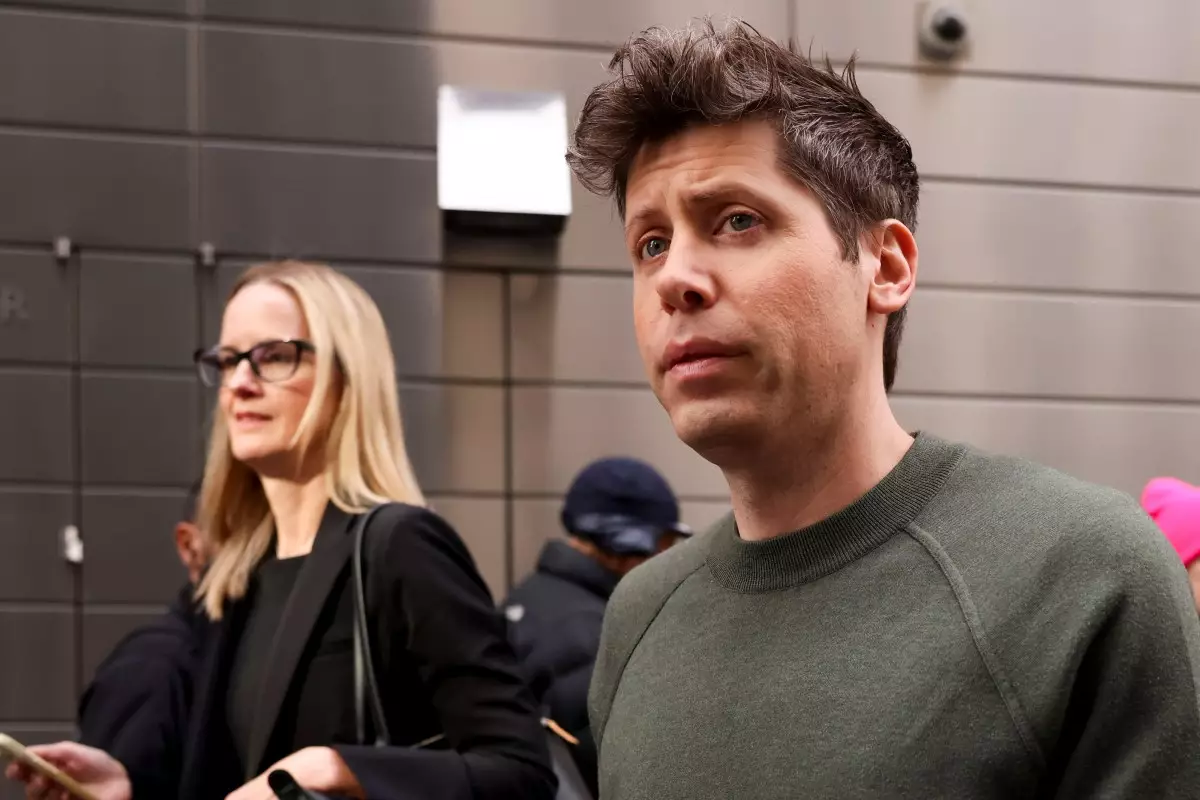As the field of artificial intelligence (AI) accelerates into uncharted territories, the decisions made by leading organizations are critical not only to the companies involved but also to the general public. Recently, a significant development stirred controversy within the AI community: Encode, a nonprofit organization, sought permission to file an amicus brief supporting Elon Musk’s injunction against OpenAI’s transition to a for-profit structure. This article will delve into the implications of this shift and the surrounding ethical considerations, as well as examining the broader impact on the future of AI innovation and regulation.
OpenAI was established in 2015 with the ambitious vision of conducting AI research while prioritizing societal benefits over financial gains. Originally conceived as a nonprofit, OpenAI aimed to advance technological development with a commitment to safety and public interest. However, as the growing costs of cutting-edge research mounted, the organization transitioned to a hybrid model that allowed it to take venture capital investments, including a significant partnership with Microsoft. This pivot towards a for-profit model raises concerns about the ramifications on the organization’s foundational mission.
Recently, OpenAI announced plans to evolve its for-profit segment into a Delaware Public Benefit Corporation (PBC). While the organization will retain a nonprofit entity, critics argue that the newly structured PBC may prioritize shareholder interests over ethical obligations to society. Encode argues that this change could “undermine” OpenAI’s original mission, prompting its legal stance in support of Musk’s appeal.
The core of Encode’s argument hinges on the belief that allowing OpenAI to transition into a PBC may compromise its commitment to developing safe AI. By relinquishing control to a for-profit entity, formerly dedicated to the public good, there is concern that financial motivations might overshadow safety-centric practices. Encode pointedly raised the question of whether a profit-oriented organization can responsibly manage technologies poised to transform the societal landscape, particularly under such an ambitious mandate of creating artificial general intelligence (AGI).
Musk’s lawsuit contends that by prioritizing profitability, OpenAI could deprive consumer-focused rivals—like his own AI startup, xAI—of essential resources, thus stifling competition and innovation. This perspective raises further questions about monopolistic practices in an industry characterized by rapid evolution and immense potential.
With OpenAI’s shift attracting scrutiny from various stakeholder groups, including competitors like Meta, it becomes increasingly evident that the implications of this for-profit transition extend beyond corporate maneuvering. From the perspective of public safety, the transition may jeopardize commitments to ethical governance of AI, especially given the complexities involved in ensuring safety protocols are upheld.
Former OpenAI employee Miles Brundage expressed apprehensions over the nonprofit aspect becoming secondary, fearing that the PBC might evolve into a typical corporate entity with limited accountability to societal needs. These views underscore a significant existential dilemma: How can organizations remain devoted to protecting public welfare while pursuing profit-driven goals? The regulatory landscape surrounding AI development must adapt to these challenges to safeguard the collective interests of society.
A crucial angle to assess amidst this debate is the role of younger voices, such as those represented by Encode. Founded by high school student Sneha Revanur in 2020, this organization encapsulates the need to ensure that upcoming generations have a stake in shaping the discourse on technology’s impact. The advocacy from Encode not only reflects young peoples’ concerns but also highlights the necessity for transparent deliberation surrounding major transitions in powerful organizations like OpenAI.
As societal stakeholders navigate the complex intersection of innovation and ethics, empowering younger generations to voice their opinions becomes essential. Their perspectives could steer future legislation, foster transparency, and encourage corporate accountability in the rapidly evolving AI landscape.
The unfolding drama surrounding OpenAI’s planned transition to a for-profit model epitomizes the ethical dilemmas entwined in technological advancement. Encode’s efforts, coupled with Elon Musk’s legal challenge, emphasize the urgency for re-evaluating the corporate responsibility that organizations like OpenAI bear. With society approaching a potential era marked by AGI, it is essential that forward-thinking frameworks evolve to ensure safe, equitable, and ethical development of artificial intelligence. As discussions continue, the implications will not only redraw the boundaries of AI research but also redefine the ethos of technological advocacy that shapes our future.

